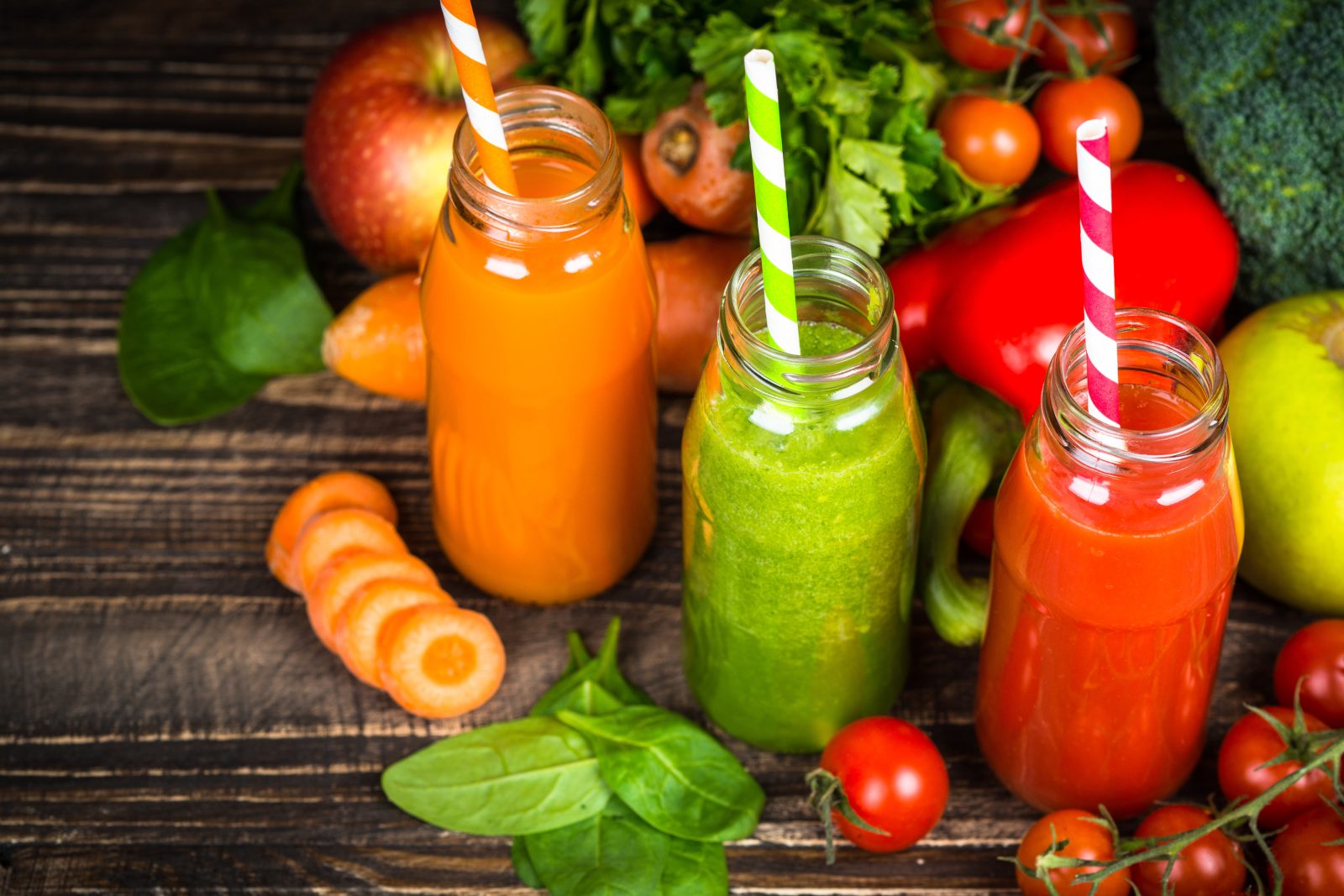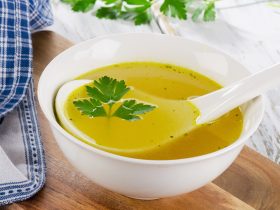The vegetarian diet is no longer an uncommon choice. In the United States, around 5 percent of adults have adopted this eating pattern, and the numbers are increasing. Approximately 23 percent of adults have consumed less meat in the last year.
This trend is likely due to the widespread consensus among experts and health organizations that incorporating more plant-based foods is beneficial, regardless of the level of strictness in your vegetarian diet. Notably, vegetarians often lead healthy lives beyond mealtimes, engaging in regular exercise and enjoying longer lifespans than non-vegetarians.
Given the growing interest in reducing meat consumption, food producers and restaurants have adjusted accordingly. Today, the availability of vegetarian-friendly choices on grocery store shelves and dining menus has made adopting a vegetarian lifestyle much more convenient and enjoyable than in the past.
In this guide, we will explore the essence of vegetarianism and the potential impact it can have on your overall well-being.
What’s Vegetarianism?
A vegetarian is an individual who primarily consumes plant-based foods, encompassing nuts, seeds, grains, vegetables, fruits, and legumes. Within the realm of vegetarianism, various categories exist, but at its core, it involves abstaining from meat consumption.
Numerous factors can influence the decision to embrace vegetarianism. Ethics play a role for some, as they oppose the idea of using animals for sustenance. Others adopt this lifestyle for potential health advantages, while environmental concerns or religious convictions can also drive the choice to become a vegetarian.
Exploring Varieties of Vegetarian Diets: Which One Fits You?
Within the realm of vegetarian diets, there exist several versions, each with its unique approach to food consumption.
Here are seven prominent types:
- Lacto-ovo-vegetarians: Consume both dairy and eggs but avoid meat, poultry, and fish. right up arrow
- Lacto-vegetarians: Include dairy products while excluding eggs, meat, poultry, and fish.
- Ovo-vegetarians: Incorporate eggs but eliminate dairy, meat, poultry, and fish.right up arrow
- Pescatarians: Include fish in their diet while avoiding meat and poultry.right up arrow
- Semivegetarians: Refrain from red meat consumption but include chicken and fish.right up arrow
- Flexitarians: Primarily follow a vegetarian diet but occasionally consume meat, poultry, or fish.right up arrow
- Vegans: Adhere to the most stringent form of vegetarianism, abstaining from all animal products and byproducts, including dairy, eggs, honey, and items containing gelatin.right up arrow
Your Vegetarian Diet: What to Eat and Ignore
When following a vegetarian diet, you’ll steer clear of meat and any other foods according to the type of vegetarian you’ve chosen to be. Instead, your focus will be on incorporating plant-based options, preferably those that are whole and minimally processed.
Foods to Embrace
Grains, nuts, seeds, legumes, vegetables, and fruits are all on the menu. Additionally, you’ll discover that the grocery store offers vegetarian alternatives that mimic meat-based products, such as veggie burgers, plant-based chicken substitutes, and imitation ground beef. However, remember that these options may be less wholesome than whole and unprocessed vegetarian foods.
Foods to Exclude
The avoidance of poultry, fish, and meat is standard for strict vegetarians, but there’s some flexibility depending on your chosen type of vegetarianism. For example, as an ovo-vegetarian, you can include eggs, or as a pescatarian, fish can be part of your diet.
7-Day Vegetarian Meal Plan for Culinary Inspiration
Day 1
Breakfast: Start with a bowl of oatmeal topped with a handful of blueberries, almonds, and a sprinkle of cinnamon.
Lunch: Savor an avocado toast made with whole-wheat bread, cherry tomatoes, and crumbled feta cheese.
Snack: Enjoy apple slices paired with a dollop of peanut butter.
Dinner: Delight in black bean tacos filled with shredded lettuce, sautéed veggies, reduced-fat cheddar, and fresh salsa.
Day 2
Breakfast: Grab a bran-and-blueberry muffin along with low- or nonfat yogurt.
Lunch: Warm up with a flavorful bean-and-veggie soup using low-sodium vegetable broth.
Snack: Nibble on roasted chickpeas seasoned with extra-virgin olive oil and sea salt.
Dinner: Indulge in a delicious Caprese sandwich crafted with tomato, low-fat, part-skim mozzarella, olive oil, and basil, all on whole-wheat bread.
Day 3
Breakfast: Savor a tofu scramble over a bed of brown rice and sautéed peppers.
Lunch: Relish quesadillas filled with low-fat, part-skim cheddar cheese, black beans, and sweet potatoes.
Snack: Enjoy a refreshing mixed-fruit bowl.
Dinner: Satisfy your palate with a vegetable stir-fry featuring tempeh, served on a bed of brown rice.
Day 4
Breakfast: Blend up a strawberry smoothie using kefir.
Lunch: Toss together a mixed green salad adorned with crispy chickpeas and slices of grilled portobello mushrooms.
Snack: Munch on carrot sticks paired with hummus.
Dinner: Relish a nourishing quinoa bowl enhanced with roasted vegetables and kimchi.
Day 5
Breakfast: Delight in low- or nonfat Greek yogurt seasoned with cinnamon and topped with berries.
Lunch: Enjoy a vegetable and cheese panini nestled in whole-wheat bread.
Snack: Savor kale chips made with a drizzle of extra-virgin olive oil and a sprinkle of sea salt.
Dinner: Indulge in zucchini noodles (“zoodles”) accompanied by marinara sauce and low-sodium meatless meatballs (preferably homemade).
Day 6
Breakfast: Wake up to overnight oats adorned with walnuts, sliced peaches, and a dash of cinnamon.
Lunch: Treat yourself to an arugula-and-veggie-topped pizza on whole-grain dough, topped with reduced-fat, part-skim mozzarella.
Snack: Enjoy a handful of raw, unsalted almonds.
Dinner: Relish portobello mushroom sliders garnished with romaine, Swiss cheese, and tomato, all on whole-wheat buns.
Day 7
Breakfast: Blend a green smoothie to kick off your day.
Lunch: Enjoy a veggie burger served on a whole-wheat bun.
Snack: Savor veggie spring rolls.
Dinner: Satisfy your taste buds with African curry paired with rice and seitan.
Dessert options are naturally vegetarian-friendly, so feel free to indulge in your favorite treats while following a vegetarian diet.
Potential Health Advantages of a Vegetarian Diet
Well-designed vegetarian diets typically contain abundant fiber and are lower in calories and fat compared to nonvegetarian diets.
Adopting this eating pattern, whether for a short duration or over the long term, can bring about various health benefits:
- Heart Support: By excluding meat, your diet becomes lower in saturated fat and cholesterol, leading to a reduced risk of heart disease. Vegetarians often maintain lower levels of LDL (“bad”) cholesterol. Staying committed to a vegetarian diet can decrease the risk of cardiovascular disease mortality and heart disease risk by 40 percent.
- Hypertension Management: Embracing a plant-based diet may contribute to lowering high blood pressure.
- Enhanced Insulin Response: While not a cure for type 2 diabetes, adopting a vegetarian diet can help stabilize blood sugar levels and enhance your body’s sensitivity to insulin when combined with a balanced diet. This approach might also decrease the risk of complications associated with type 2 diabetes.
- Cancer Prevention: Vegetarians exhibit lower cancer rates compared to nonvegetarians, suggesting a potential link between adhering to a plant-based diet and a reduced risk of specific types of cancer.
- Reduced Risk of Metabolic Syndrome: Certain studies propose that individuals who prioritize plant-based foods tend to have lower rates of metabolic syndrome, a collection of risk factors that could elevate the likelihood of chronic conditions like type 2 diabetes and heart disease.
All these health advantages converge into one significant outcome: Embracing vegetarianism could contribute to a longer life. Research indicates a connection between the extent of health benefits and the strictness of one’s vegetarian diet. Strict vegetarians (also known as vegans) experience the most substantial health gains, followed by Lacto-vegetarians, pescatarians, and nonvegetarians.
Potential Weight Loss Impact of a Vegetarian Diet
Opting for a plant-based diet generally means consuming fewer total calories (unless you’re substituting meat with excessively unhealthy simple carbohydrates like white bread and pasta). Research indicates that, typically, individuals who consume less meat tend to have a lower body mass index.
Within a diet rich in vegetables, whole grains, and legumes, vegetarians also consume a substantial amount of fiber. Fiber plays a role in promoting a sense of fullness and can contribute to weight loss if your overall calorie intake decreases.
An investigation involving individuals with type 2 diabetes discovered that adhering to a vegetarian diet was nearly twice as effective in aiding weight loss compared to following a low-calorie diet.
For vegetarians to experience these weight loss advantages, it’s essential to prioritize nutritious whole foods and avoid overindulgence, notes Julieanna Hever, RD, the author of “Plant-Based Nutrition (Idiot’s Guides)” based in Los Angeles. She emphasizes that due to the proliferation of animal-free junk food, it has become easier to consume hyper-palatable vegetarian foods to the point of gaining weight.
Disadvantages of a Vegetarian Diet
Experts recommend seeking guidance from a registered dietitian to create a meal plan that ensures you’re obtaining sufficient essential nutrients and maintaining a reasonable daily calorie intake.
A dietitian can offer insights into suitable foods to consume or supplements to take to prevent deficiencies.
Vegetarians need to be cautious about potential nutrient deficiencies. Here are some vegetarian-friendly strategies to meet your nutrient needs:
- Protein sources include nuts, peanut butter, grains, legumes, eggs, dairy, tofu, tempeh, and seitan.
- Iron can be obtained from legumes, spinach, whole grains, fortified cereals, seeds, and tofu.
- Calcium is present in milk, yogurt, cottage cheese, and fortified nondairy milk.
- Zinc can be sourced from legumes, fortified cereals, nuts, seeds, dairy, and nutritional yeast.
- Vitamin B12 is found in dairy, fortified breakfast cereal, soy milk, eggs, and nutritional yeast.
- Vitamin D is most readily available in cow’s milk.
Given that vegetarians typically consume fewer calories than nonvegetarians, the diet might not be suitable for growing children and teenagers. Consult your pediatrician to ensure appropriateness.
Vitamin D Supplements for Vegetarians
Due to the potential for deficiencies, it’s worth considering supplements for vegetarians. Particularly crucial is a vitamin D supplement if you’re not getting enough of this vitamin from sunlight or fortified foods.
Various Challenges of Being a Vegetarian
One of the main challenges that many vegetarians face is resisting the temptation of meat-filled dishes they used to enjoy, like turkey during Thanksgiving or hot dogs at a baseball game. This often requires a significant shift in meal planning. “Many of us grew up with meat as the focal point of our meals, so transitioning away from that takes time,” explains Hever.
Eating out at restaurants can also pose challenges, although more and more establishments now offer vegetarian-friendly options like veggie burgers. Opting for a salad along with a meat-free appetizer is also a good strategy. Pescatarians and pollotarians have an advantage in dining out as fish and poultry are commonly available on many menus.
6 Beginner Tips for Vegetarians
Michelle Jaelin, a registered dietitian at NutritionArtist.com in Hamilton, Ontario, highlights the importance of proper planning when transitioning to a vegetarian diet. The Academy of Nutrition and Dietetics agrees and stresses that a well-planned approach is essential for a successful vegetarian diet.
Here are some practical tips to help you get started:
- Ease into it. Instead of abruptly becoming a vegetarian, consider incorporating a few meatless meals into your weekly routine and gradually reducing meat consumption over time.
- Consult a professional. Recognize potential nutritional gaps and collaborate with a registered dietitian (you can find one at EatRight.org) to create balanced meal plans. Jaelin emphasizes the significance of addressing potential deficiencies with expert guidance.
- Embrace meal prep. Choose nutrient-rich vegetarian foods and ensure your refrigerator is stocked with wholesome options. Preparing ingredients like chopped vegetables for salads or cooking batches of quinoa and farro in advance can be helpful.
- Explore diverse flavors. Experiment with various herbs and spices to add excitement to your meals.
- Modify favorite recipes. Transform your preferred dishes into vegetarian versions. For example, opt for bean-filled vegetarian chili instead of beef-based chili.
- Discover new recipes. Seek out recipes from websites, cookbooks, and social media platforms that resonate with you. Make adjustments to suit your preferences and gradually integrate them into your weekly meal plan. As Hever suggests, this practice will become more intuitive over time.
Resources We Recommend
Top Website for Plant-Based Lifestyle
Forks Over Knives is a valuable platform to enhance your knowledge and confidence as a vegetarian. It offers recipes, meal planning assistance, and a cooking course to guide you in preparing plant-based meals at home. Subscribe to their weekly newsletter for meal ideas directly to your inbox or explore their print magazine for further culinary inspiration.
Preferred Nutrition Reference
The Academy of Nutrition and Dietetics provides a helpful page with practical suggestions for vegetarians to ensure they obtain essential nutrients like calcium, iron, protein, vitamin B12, and vitamin D.
Recommended Vegetarian Instagram Account
Avoid culinary monotony by following @CookieandKate on Instagram. This account shares stunning images and instructional videos of delectable vegetarian dishes. When you find a tempting creation, visit the blog for the complete recipe.
Go-To List of Kitchen Staples
Transitioning to a plant-based diet alters your kitchen inventory. EatingWell’s comprehensive list of pantry essentials equips you with items necessary for preparing wholesome, well-balanced meals and reduces reliance on processed options.
Favorite Educational Organization
The Vegetarian Resource Group is a nonprofit that educates the public on various aspects of vegetarianism, including its environmental benefits, health advantages, and practical strategies for maintaining the diet when dining out.
Top Choice for Finding a Registered Dietitian
Starting a meat-free journey often benefits from expert guidance in meal planning and nutrient intake. The Academy of Nutrition and Dietetics website offers a search tool to find registered dietitians in your area who can support your dietary goals.
In Conclusion
Embracing a vegetarian diet rich in whole grains and vegetables provides numerous health advantages, spanning from weight management to safeguard against diseases.















Find Us on Socials